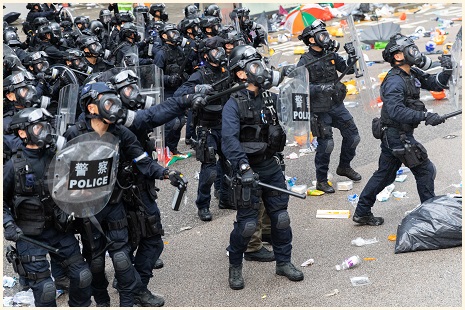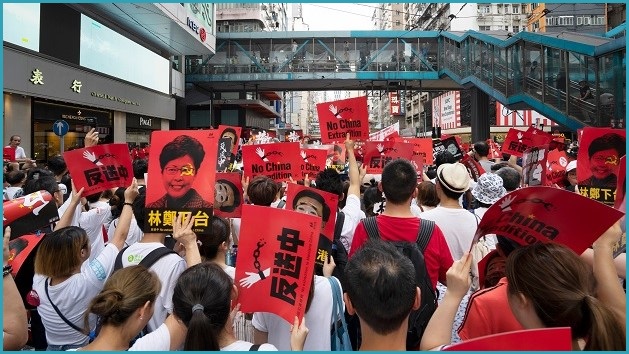Access to a popular messaging app used by government protesters in Hong Kong was severely distrupted last week by a denial of service attack.
Telegram Messenger said no user data was compromised.
We’re currently experiencing a powerful DDoS attack, Telegram users in the Americas and some users from other countries may experience connection issues.
— Telegram Messenger (@telegram) June 12, 2019
When asked on Twitter where the attack originated, Telegram CEO Pavel Durov confirmed that the attack came from China.
IP addresses coming mostly from China. Historically, all state actor-sized DDoS (200-400 Gb/s of junk) we experienced coincided in time with protests in Hong Kong (coordinated on @telegram). This case was not an exception.
— Pavel Durov (@durov) June 12, 2019
Hong Kong has been in a state of civil unrest since a bill to allow the extradition of criminals to mainland China was proposed by the Hong Kong government.
Protesters see the extradition bill as extending Beijing’s influence in the city.
Hong-Kong based writer and author of a history of civil disobedience in the city, Antony Dapiran, said messaging services like Telegram have been crucial for the recent protests.
“The main reason for using Telegram is that during the last lot of massive protests – the Umbrella Movement – there was very clear group leading, organising and coordinating protests,” Dapiran said.
“When the protest escalated, they would decide on tactics and give instructions of where and how to charge police lines. All those leaders have since been prosecuted – the government went after them for leading and inciting illegal protests.”
Civil disobedience
Earlier this year, nine activists were charged with offences relating to inciting a public nuisance during the 2014 Umbrella protests – three of them received 16 month prison sentences.
“This time around no one is stepping forward to say ‘Yep, I’m leading this thing’. But despite there not being a central stage and people with megaphones, all the protesters are very well organized,” Dapiran said.
“Whenever they need supplies like water, facemasks, goggles, it materializes in the front lines, and there is a silent coordinated timing for pushing against police lines.”
Telegram has been favoured by protestors because it allows for very large chat groups and has not yet had the integrity of its encryption compromised – unlike Facebook-owned rival service, Whatsapp, that had a security vulnerability exposed in May.
Dapiran, who has been on the ground in Hong Kong observing the protests, said even though messaging services have made it safer for protestors to organize themselves, they still fear repercussions from the state.
“This has been done very deliberately to avoid getting prosecuted by not having a publicly visible figure the authorities can identify and charge,” Dapiran said.
"But there is still some worry about when individual protesters get arrested and whether police look at chat apps and use them as evidence in prosecutions."

Though organisers and police differ vastly on the actual numbers of protesters who have been going along to rallies since late March, turnouts have grown significantly.
Earlier this month, thousands of Hong Kong lawyers marched in a silent protest against the bill.
Last week, he Hong Kong government announced it would continue its second reading of the extradition bill, triggering a resumption of hostilities between protesters and police who have used rubber bullets, beanbag shots, and tear gas against the crowd.
On Saturday, Hong Kong Chief Executive Carrie Lam announced that the extradition bill would be suspended.
An estimated two million protestors returned to the streets on Sunday saying they wanted the bill scrapped altogether and for Chief Executive Lam to step down.
Dressed in black, the protesters also mourned a man who fell to his death after unfurling a protest banner on Saturday.










